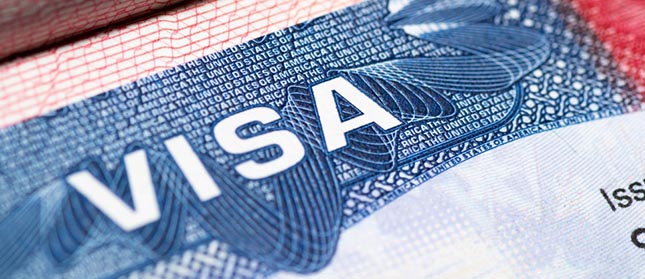The U.S. government has committed over the next 60 days to reviewing its immigration processes to protect “its citizens from aliens who intend to commit terrorist attacks, threaten our national security, espouse hateful ideology, or otherwise exploit the immigration laws for malevolent purposes.”
The Executive Order entitled, “Protecting the United States from Foreign Terrorists and Other National Security and Public Safety Threats,” outlines the process to achieve this policy objective, which includes increased vigilance and oversight of the issuance of U.S. visas.
U.S. visas are often used by some Canadian trucking companies to hire drivers who are not visa-exempt to cross the border, as well as other options like the Temporary Foreign Worker Program (TFWP), provincial nominee programs, or the student visa process to fill vacancies.
According to the presidential Executive Order, the Secretary of State, in coordination with the Attorney General, the Secretary of Homeland Security, and the Director of National Intelligence, shall promptly:
- Determine the information needed from any country to adjudicate any visa, admission, or other benefit under the Immigration and Nationality Act (INA) for one of its nationals, and to ascertain whether the individual seeking the benefit is who the individual claims to be and that the individual is not a security or public safety threat;
- Reestablish a uniform baseline for screening and vetting standards and procedures, consistent with the uniform baseline that existed on January 19, 2021, that will be used for any alien seeking a visa or immigration benefit of any kind;
Also, within 60 days of the date of this order, the Secretary of State, the Attorney General, the Secretary of Homeland Security, and the Director of National Intelligence shall jointly submit to the President, through the Assistant to the President for Homeland Security, a report:
- Identifying countries throughout the world for which vetting and screening information is so deficient as to warrant a partial or full suspension on the admission of nationals from those countries pursuant to section 212(f) of the INA (8 U.S.C. 1182(f)); and
- Identifying how many nationals from those countries have entered or have been admitted into the United States on or since January 20, 2021, and any other information the Secretaries and Attorney General deem relevant to the actions or activities of such nationals since their admission or entry to the United States.
- Whenever information is identified that would support the exclusion or removal of any alien described in subsection 2(b), the Secretary of Homeland Security shall take immediate steps to exclude or remove that alien unless she determines that doing so would inhibit a significant pending investigation or prosecution of the alien for a serious criminal offense or would be contrary to the national security interests of the United States.
Additional measures for potential action within the next 30 days from the date of this order also include:
- Evaluate and adjust all existing regulations, policies, procedures, and provisions of the Foreign Service Manual, or guidance of any kind pertaining to each of the grounds of inadmissibility listed in sections 212(a)(2)-(3) of the INA (8 U.S.C. 1182(a)
- (c) Evaluate all visa programs to ensure that they are not used by foreign nation-states or other hostile actors to harm the security, economic, political, cultural, or other national interests of the United States.
Although a review of the screening process, admissibility and other actions remain important for security purposes, it is also critical to ensure the outcome of this review is not detrimental to legitimate and compliant fleets and truck drivers who require the timely and efficient access to visas to support their livelihood, businesses, and supply chain.
“Since the attacks on 9/11, the CTA has stood shoulder to shoulder with the U.S. and Canadian government in designing and enhancing border security programs involving our sector,” says Stephen Laskowski, president, CTA. “The issuance of visas in our industry is important to the functionality of the Canada-U.S. supply chain. The CTA has already engaged with U.S. and Canadian officials regarding the use of visas in the trucking industry and stands ready to examine improvements to the process, including screening methods. This will only further secure and enhance our borders to the benefit of both of our nations.”


